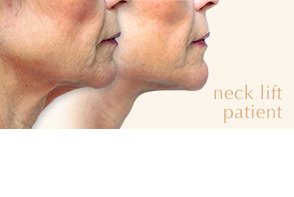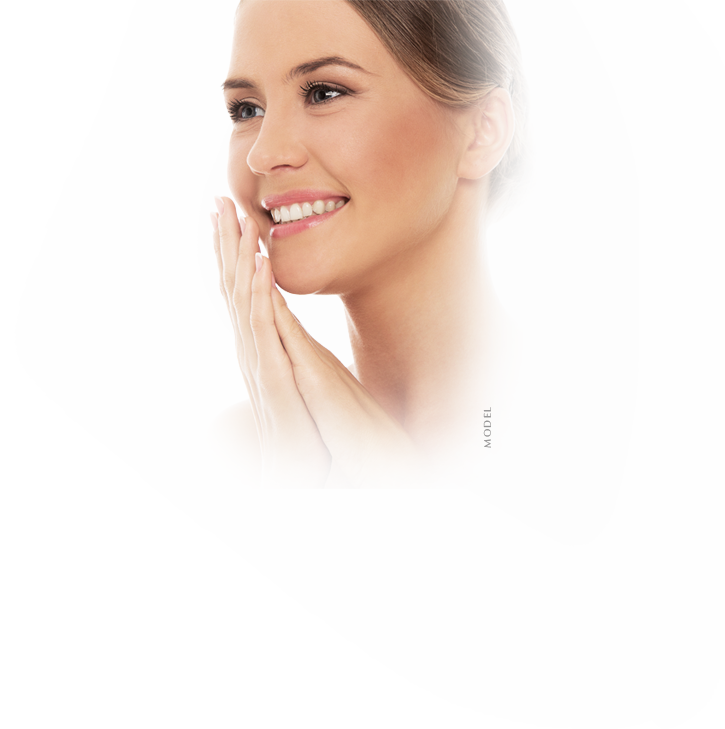Anti-Aging Skin Treatments
Medical facials, peels, and skin treatments for a healthier, radiant glow
Here in Asheville, we’re lucky to live in a beautiful setting that beckons us to head outside and enjoy a day on the trail or by the river. But all that time out in the sun can add up. Even if you’re diligent about sunscreen use, the natural aging process still takes a toll.
If you look in the mirror and notice that your skin looks dull, dry or etched with fine lines, then it’s time to consider a little professional help. Medical grade skin treatments are designed to address common skin concerns more quickly and effectively than over-the-counter products.
With the expertise of board certified plastic surgeon Dr. Donald Conway and our highly trained, licensed estheticians, we can help you find a skin treatment that satisfies your needs. Learn more about your options below, or contact us to schedule a personal consultation.
- Key Benefits
- Glossary
- Improved Skin Tone & Texture: These treatments can refine coarse texture, minimize pores, and enhance overall skin clarity by removing dead skin cells and promoting cell turnover.
- Acne and Acne Scar Reduction: Certain peels and facials are designed to clear acne breakouts and reduce the appearance of acne scars by deeply cleansing pores and removing acne-causing bacteria.
- Reduction in Sun Damage & Hyperpigmentation: Treatments like chemical peels can target hyperpigmentation, including age spots, melasma, and sun damage, evening out skin tone.
- Enhanced Skin Hydration: Specialty facials often include deep moisturizing treatments that restore hydration to dry, dehydrated skin, leaving it feeling soft and supple.
- Customizable Treatments: The wide range of available peels and facials allows for customization according to skin type, concern, and desired outcome, ensuring personalized care.
- Immediate Results with Minimal Downtime: Many skin treatments offer immediate improvements in skin appearance with minimal to no downtime, making them convenient options for busy schedules.
- AHA (Alpha Hydroxy Acid): A type of chemical peel that uses fruit acids to exfoliate the outer layer of the skin, improving texture and tone, commonly used for treating fine lines and sun damage.
- Acne Scars: Marks or indentations in the skin resulting from the healing of acne, which can be treated or improved with various skin treatments and peels.
- BHA (Beta Hydroxy Acid): A chemical peel that uses salicylic acid to penetrate deep into the pores to remove dead skin cells and excess sebum, often recommended for acne-prone skin.
- Chemical Peel: A skin resurfacing treatment that uses a chemical solution to remove the top layers of skin, revealing smoother, more youthful skin beneath.
- Collagen: A protein that provides structure to the skin, whose production can be stimulated by various skin treatments, leading to improved skin elasticity and reduced wrinkles.
- Exfoliation: The process of removing dead skin cells from the outer layer of the skin, improving skin texture and promoting cell turnover.
- Hyperpigmentation: Darkened areas of skin caused by excess melanin production, which can be treated with chemical peels and other skin brightening treatments.
- Medical-Grade Skincare: High-quality skincare products that contain active ingredients in concentrations higher than those found in over-the-counter products, typically sold through licensed professionals.
- Microdermabrasion: A non-invasive procedure that uses fine crystals or a diamond tip to exfoliate and remove the superficial layer of dry, dead skin cells.
- MicroPeel: A light chemical peel that gently exfoliates the skin, often combining physical exfoliation (like microdermabrasion) with a light chemical solution to improve skin texture and brightness with minimal downtime.
- Peel Strength: The potency of a chemical peel, categorized as light, medium, or deep, determining the depth of skin resurfacing and the intensity of the treatment.
- pH Level: The measure of acidity or alkalinity in skincare products, including peels; a lower pH means a more acidic product, which can affect the depth of exfoliation.
- Post-Treatment Care: The recommended care regimen following skin treatments, crucial for healing and achieving optimal results, often involving moisturizers and sun protection.
- Salicylic Acid: A type of BHA used in chemical peels and acne treatments for its ability to deeply cleanse pores and reduce inflammation.
- Skin Texture: The feel and appearance of the skin’s surface, which can be smoothed and improved through various skin treatments.
- Skin Tone: The evenness and color of the skin, which can be enhanced and evened out with skin treatments and peels.
- Skin Type: The classification of skin based on characteristics such as oiliness, dryness, sensitivity, and tendency towards acne, important in determining appropriate skin treatments.
- Specialty Facials: Customized facial treatments designed to address specific skin concerns such as hydration, aging, or acne, using targeted products and techniques.
- TCA (Trichloroacetic Acid): A type of chemical peel that penetrates deeper layers of the skin, used to treat more significant skin concerns like deep wrinkles and scars.
- TCA Peel: A chemical peel using Trichloroacetic Acid, effective for medium to deep peeling, targeting deeper wrinkles, scars, and sun damage, offering significant improvements in skin texture and tone.
Microdermabrasion
One of our more popular skin resurfacing treatments is microdermabrasion. Rather than using chemicals or lasers to exfoliate, microdermabrasion uses a fine mist of diamond particles to mechanically slough away dull, damaged layers of skin.
Microdermabrasion requires no downtime and encourages healthy skin cell growth for a smoother, more youthful complexion. Many patients benefit from a series of microdermabrasion treatments performed every month or so; improvements become more dramatic with each follow-up treatment.
Specialty Facials
At-home facials can feel good, and many can even produce a refreshing glow. However, the results are usually very temporary—the next day, your skin is right back where it started.
Medical-grade facials, performed by a licensed esthetician, provide more thorough cleansing and exfoliation for enhanced, longer-lasting results.
Your Facial Options
Our options for facials in Asheville include:
- Deep Cleansing Facial: cleanses pores & exfoliates to calm inflammation and restore a lighter feel and healthy glow
- Men’s Facial: tones and sloughs away deep-seated impurities for a healthier complexion
- Teen Facial: gently exfoliates and cleanses to calm acne and brighten the skin
Performed as a single treatment, a specialty facial is the perfect way to boost your glow for an upcoming event. Performed as a series over the course of a few months, our medical-grade facials can help you see smoother, clearer skin on a daily basis.
Chemical Peels
Chemical peels are excellent treatments to address early signs of aging and restore an overall healthier appearance to the skin. A thin layer of specially formulated acids are painted on the skin. Over several days following a peel, dull, damaged outer layers of skin exfoliate and give way to smoother, healthier-looking skin.
Your Chemical Peel Options
We offer a variety of peels, many which can be used safely on both the face and body:
- MicroPeel: a gentle, light peel that exfoliates for a firmer, brighter skin appearance with no downtime.
- Vitalize Peel: firms the skin and reduces fine lines and wrinkles for a more youthful glow. Consider a series of treatments for dramatic results.
- Jessner’s Peel: combines lactic acid, salicylic acid, and resourcinol for a medium peel that helps minimize blemishes and fine lines.
- Obagi Blue Peel: a physician-performed TCA peel using Obagi’s specialized formula for dramatic improvements in skin appearance. Requires pre-treatment prep with Obagi skincare.
To learn more about our medical skin care treatments in Asheville, please contact us! We will be happy to address your questions or schedule your appointment for a personal consultation with Dr. Conway and our aesthetics team.
References »
Rendon MI, Berson DS, Cohen JL, Roberts WE, Starker I, Wang B. Evidence and considerations in the application of chemical peels in skin disorders and aesthetic resurfacing. Journal of Clinic and Aesthetic Dermatology. 2010 Jul;3(7):32-43.
Chen X, Wang S, Yang M, Li L. Chemical peels for acne vulgaris: a systematic review of randomised controlled trials. BMJ Open. 2018 Apr 28;8(4):e019607. doi: 10.1136/bmjopen-2017-019607.
Bhardwaj V, Sharma K, Maksimovic S, Fan A, Adams-Woodford A, Mao J. Professional-Grade TCA-Lactic Acid Chemical Peel: Elucidating Mode of Action to Treat Photoaging and Hyperpigmentation. Frontiers in Medicine (Lausanne). 2021 Feb 12;8:617068. doi: 10.3389/fmed.2021.617068.
Liu H, Yu H, Xia J, Liu L, Liu GJ, Sang H, Peinemann F. Topical azelaic acid, salicylic acid, nicotinamide, sulphur, zinc and fruit acid (alpha-hydroxy acid) for acne. Cochrane Database Syst Rev. 2020 May 1;5(5):CD011368. doi: 10.1002/14651858.CD011368.pub2.
Sarkar R, Garg V, Bansal S, Sethi S, Gupta C. Comparative Evaluation of Efficacy and Tolerability of Glycolic Acid, Salicylic Mandelic Acid, and Phytic Acid Combination Peels in Melasma. Dermatologic Surgery. 2016 Mar;42(3):384-91. doi: 10.1097/DSS.0000000000000642.



